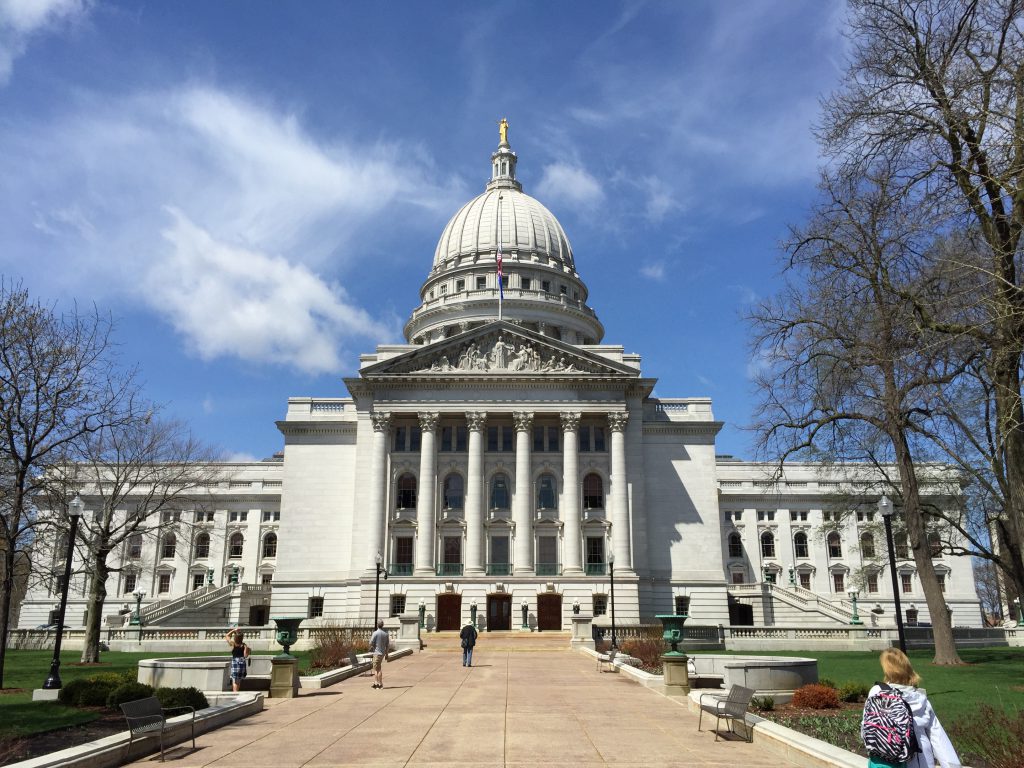Legislature Fails to Address Pension Crisis
400,000 seniors in Wisconsin will be living in poverty by 2030, state Task Force warned.
One year ago, the Governor’s Task Force on Retirement Security documented an approaching crisis in Wisconsin, where the median age of 40 is older than the national average. Among the Task Force’s warnings:
“Almost one million Wisconsinites between the ages of 18 and 64 do not have access to a retirement savings plan through work. This is especially true for employees of small businesses, which make up nearly half of Wisconsin’s workforce.
“If no action is taken, the University of Wisconsin study found over 400,000 seniors in Wisconsin will be living in poverty by 2030, and the state will have to spend an additional $3.5 billion on public assistance programs.”
Although the Task Force’s recommendations came early in the 2001-02 legislative session, the Republican-controlled Legislature did not act on the report. One reason was the reluctance of Republicans to give two prominent Democrats — Gov. Tony Evers and State Treasurer Sarah Godlewski, the Task Force chair and a U.S. Senate candidate — any election-year victories.
The Task Force report prompted two bills in the Legislature: Wis(K)ids, a first-in-the nation savings plan the state would jumpstart with $25 when a child was born or adopted, and WisEARNS, a state-managed retirement plan for workers in small businesses.
Wis(K)ids, which had seven Assembly Republican sponsors – including Ways and Means Committee Chairman John Macco – got a public hearing on one of the final days of the legislative session. It was sponsored by 27 of the 99 Assembly members. WisEARNS, sponsored only by Democrats, never left the Legislature’s starting gate.
It would require the state Department of Employee Trust Funds (ETF) to set up accounts for every child, starting with a $25 state contribution. Adults would donate to the accounts, including depositing some of a tax refund. The accounts could only be used for education expenses, to buy a first home, medical bills or in retirement. Ownership of the account would shift to the child at age 18. ETF could hire a vendor to run the program.
Goyke noted that the Urban League, Boys and Girls Clubs and UW-Extension backed 401(K)ids. The program, he said, would be “unique in America – no one has done this before.”
Goyke said Oklahoma’s SEED experiment, which set up state-run $1,000 accounts for higher education for low-income children, has shown that “a small amount of savings can change long-term economic behaviors, particularly within people living in poverty.”
As for WisEARNS, Goyke addressed that proposal in a newsletter to his Milwaukee constituents, noting it would offer a way for small business employees to save for retirement with the help of their employers “WisEARNS will provide an easy, accessible, and cost-free option for employers … to offer retirement plans for their employees,” Goyke said. “Employees would be automatically enrolled with the ability to opt-out, employers would not be required to make contributions, and employees would be charged low or no fees for managing the investments.”
Only 14% of employees nationally were covered by traditional pensions last year – a drop from 62% in 1983, Goyke said.
WisEARNS would especially help women and minorities who work in small businesses, many of whom are “not covered in a work-based retirement plan,” Goyke said.
WisEARNS was a top priority of the American Association of Retired Persons. “AARP especially pushed WisEARNS, and we will definitely keep pushing it for next session,” said AARP Advocacy Director Lisa Lamkins. But “there wasn’t much Republican support for WisEARNS.”
“It’s really too bad because the policy is a win-win-win,” Lamkins added. “WisEARNS would help small businesses offer a way for their employees to save and it would help workers save their own money, so they can be independent in retirement. Plus, it saves state taxpayer dollars by keeping people off public programs in retirement.”
Steven Walters started covering the Capitol in 1988. Contact him at stevenscotwalters@gmail.com
If you think stories like this are important, become a member of Urban Milwaukee and help support real, independent journalism. Plus you get some cool added benefits.
The State of Politics
-
RNC Brings Fame to Gen Z Party Leader
 Jul 15th, 2024 by Steven Walters
Jul 15th, 2024 by Steven Walters
-
Wisconsin’s Republican Roots Run Deep
 Jul 8th, 2024 by Steven Walters
Jul 8th, 2024 by Steven Walters
-
Feuding Supreme Court Justices Need a Break
 Jul 1st, 2024 by Steven Walters
Jul 1st, 2024 by Steven Walters






















